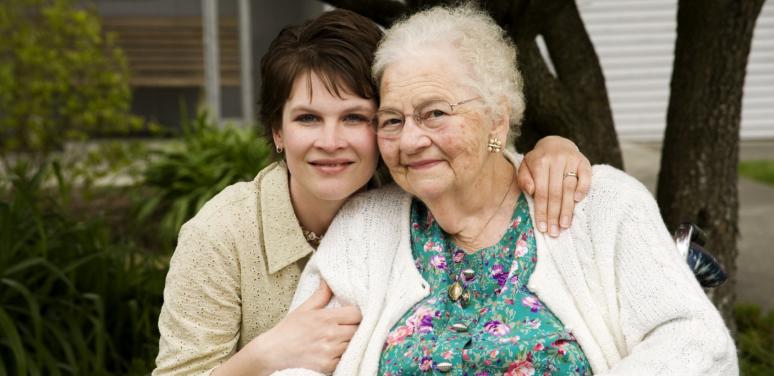We’ve all seen the articles and statistics; elder abuse is on the rise in America. In fact, in 2008, there were 21,000 reported cases of elder abuse in nursing homes that were investigated by Long Term Care Ombudsman state programs alone.
But there is no single indicator that predicts whether or not an elderly individual will be a victim. Elder abuse is not limited to an income bracket or gender. While elder abuse is typically geared towards individuals with physical, mental, or cognitive setbacks such as Alzheimer’s, it can happen to anyone at any time as there is initially a level of trust and closeness between an elderly individual and a caregiver or with a family member or friend.
The best way to avoid elderly abuse is to be informed. That said, if you are an older American, you need to educate yourself on the topic. As for adult children of older parents, they should be prepared to provide their support and vigilance.
Elder abuse comes in many forms, but a broad definition involves the improper use of funds, property or assets belonging to someone over the age of 60.
Common Types of Elder Abuse Include:
- Credit card fraud
- Annuity scams
- Identity theft
- Abuse of powers of attorney
- Reverse mortgage scams
- Telephone and Internet phishing scams
- The use of undue influence by trusted individuals to swindle seniors out of their property and money
In the Costco Connection web and print publication from October 2015, David Horowitz and his daughter Amanda Horowitz have penned an article on this timely subject. Amanda is the CEO of Fight Back, a consumer advocacy institution started by her father. The article is well worth your time, and some of the finer points are listed below. This is not a new subject to our blog, and most of these points have been voiced in other posts, but we are convinced it is impossible to talk about this subject too much.
Unreported Cases: Elder abuse often goes unreported because of embarrassment or fear that the victim will lose autonomy. The victims may even choose not to report the abuse because they want to protect the guilty party which is often a family member. Thus, only 1 in 14 cases of elder abuse is actually reported to authorities.
Safeguarding a Loved One: In the words of David Horowitz, ”Since elder financial abuse is correlated highly with isolation, one way you can prevent the possibility of it happening is to make sure an elderly relative has regular social interactions and outings.” We should also point out that if a caregiver is a paid relative, there needs to be a Personal Care Agreement in place. This legal contract needs to be as detailed as possible – delineating remuneration, duties, hours and spending limits.
Abuse in the News
Elder abuse isn’t something that merely happens to “common” folk; elder abuse allegations surfaced when it was found when successful Marvel comic master, 95-year-old Stan Lee, had hundreds of thousands of dollars take against his will by both family members and caretakers. There was also a suspicious $850,000 condo purchase made with Lee’s finances that were not initiated by him, unauthorized control over Lee’s social media accounts and e-mails, alleged threats to Lee, among other forms of abuse.
As quoted in a Polygon article written in March 2018, Lee states, “I learned later on in life, you need advisors if you’re making any money at all. I did everything myself… I paid all the bills, I did all the bookkeeping, I handled everything. But then, a little money started coming in, and I realized I needed help. And I needed people I could trust. And I had made some big mistakes. And my first bunch of people were people that I shouldn’t have trusted.”
The situations were resolved, but nevertheless, Lee had a lengthy legal battle to deal with among having emotional upheaval regarding the abuse itself, lost relationships with loved ones, and tainted trust with associates.
While no one deserves to be a victim of elder abuse, what cases like these (and even more minor cases) do is bring to light the reality of such an issue and even help present the signs that elder abuse may be associated with, even though the signs are not always clear at first.
Spotting the Signs of Elder Abuse:
- Changes in spending patterns
- Helping ”friends” with their finances
- Tips or extra payments to caregivers or family
- Persons newly added as signees on accounts
- Unexplained changes in professional advisors such as bankers, attorneys or accountants
- Checks made out to “cash”
- Unexplained disappearance of valuables, cash, medications or personal items
- Large and/or unexplained transfers between accounts
- Unexplained changes to a will or power of attorney
- A caregiver, friend or relative that keeps trying to isolate the senior from others
Who Can Help?
- The National Center on Elder Abuse www.ncea.acl.gov
- The National Adult Protective Services Association www.napsa-now.org
- Idaho Adult Protective Services http://www.idahoaging.com/protection/index.html
- The National Academy of Elder Law Attorneys www.naela.org
At Idaho Estate Planning, we understand the challenges faced by elder Americans and their families. Mark Wight, the founder and president of Idaho Estate Planning, is a member of the National Academy of Elder Law Attorneys and the Academy of VA Pension Planners. Our Idaho Estate Planning team has the experience and expertise to help you maintain your options and protect yourself as well as your loved ones now and in the future. Remember, good planning is no accident.






